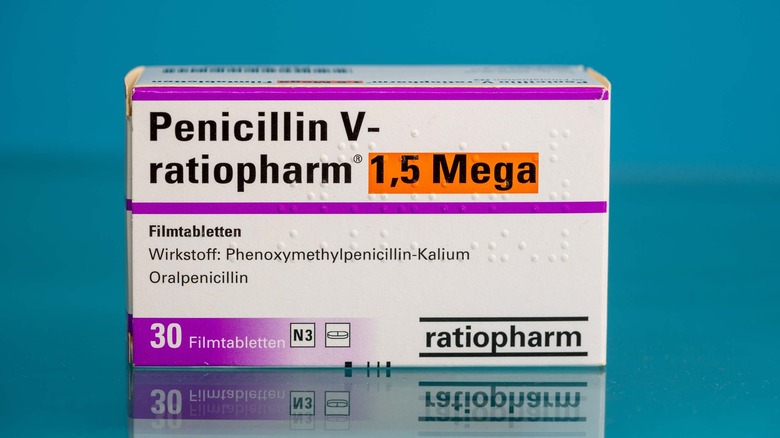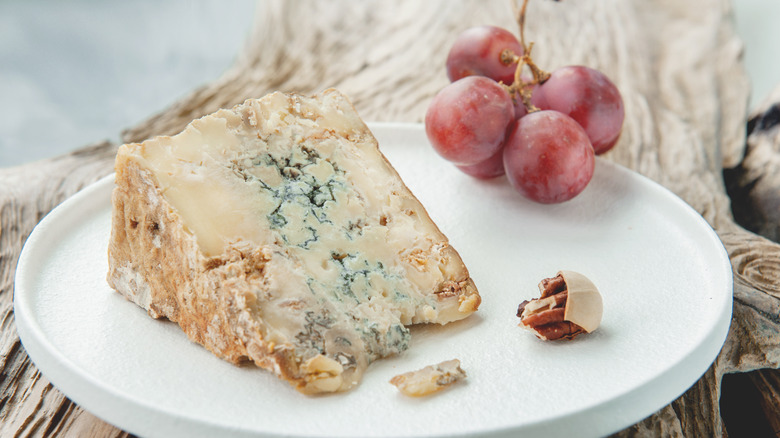Think Twice Before Eating This If You're Allergic To Penicillin
Penicillins are a type of antibiotic that is used to fight bacterial infections such as pneumonia and meningitis, per MedicineNet. This group of drugs includes several names that may be familiar to you, including penicillin V and G, ampicillin, and amoxicillin.
When penicillin was originally discovered in 1928 by Alexander Fleming, it was a game changer. Before penicillin, it was nearly impossible to treat bacterial infections effectively. People with even a simple cut or scratch could potentially die and there was nothing that could be done, according to the American Chemical Society.
While penicillin has saved many lives since its discovery, in some cases it may actually put a person's life in peril if they happen to be allergic to it. The Mayo Clinic lists hives, rash, and itching as potential symptoms of a penicillin allergy. Severe allergic reactions may include a life-threatening condition called anaphylaxis. People with anaphylaxis may have problems breathing, nausea and vomiting, abdominal cramps, diarrhea, dizziness, weak and rapid pulse, seizures, low blood pressure, or loss of consciousness.
With that in mind, it is obviously important for someone with a penicillin allergy to know when they might encounter it, especially if it's somewhere unexpected, like in food.
Blue cheese and penicillin
If you are allergic to penicillin, it may be wise to avoid blue cheese as well. The National Library of Medicine explains that penicillin is produced by a type of mold called Penicillium. Penicillin is extracted from the mold, then purified to be used as a drug. The blue veins that are characteristic of blue cheese are actually composed of various strains of Penicillium mold, says Science Focus.
An experienced registered nurse writing for Embrace the Blue shares that she personally has not seen any cases of people having allergic reactions to the penicillin found in blue cheese nor could she find any well-documented, extensive studies dealing with the topic. However, there have been anecdotal reports of people reacting to it.
Embrace the Blue shares the theory that any allergic reaction a person might have would be less severe since the cheese is ingested by mouth. However, they caution, this does not mean that it is safe for all people with a penicillin allergy to eat blue cheese. They suggest erring on the side of caution and not eating it if you are allergic to penicillin.


